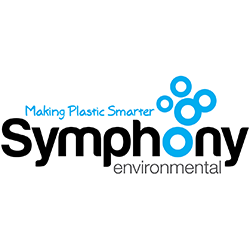Symphony Environmental Technologies Plc (LON:SYM), a global specialist in technologies that make plastic smarter has today reported that Extrusa Pack, a Brazilian plastic manufacturer and user of Symphony’s d2w and d2p technology, has announced a donation to provide the entire public bus system in the city of Guarulhos (858 vehicles in total), with d2p anti-microbial film to cover seats and handles, protecting its 400,000 plus passengers from Coronavirus and multiple bacteria and fungi normally present on these surfaces. The donation was agreed with the City’s Mayor who personally visited the factory where the films are made.
In a public statement, Gisele Barbin, Commercial Manager for Extrusa Pack commented: “We wanted to contribute in some way to tackling the pandemic, and as we already manufacture garbage bags with this important antimicrobial technology, we only need to [make minor] adjustments to the factory equipment to produce the protective plastic film. Knowing the priority that Mayor Guti has given to dealing with Coronavirus, we decided to donate and apply the films to the buses. More than 400,000 passengers now have extra protection against infection on public transport.”
Michael Laurier, CEO of Symphony Environmental Technologies, said: “We would like to commend Extrusa Pack for this thoughtful contribution to public health in the city of Guarulhos. We hope other cities in Brazil, Latin America and the rest of the world, will follow the lead of Guarulhos and provide this kind of anti-microbial protection in their public transport systems, protecting passengers from Coronavirus and other dangerous microbes. We at Symphony, will continue to promote the use of our antimicrobial technology to protect human health and the environment in these challenging times.”
With this announcement, Guarulhos becomes the first public transport system in the world to incorporate d2p anti-microbial technology to protect the health of its users. This is yet another excellent application of Symphony’s technology, which can also be used to protect water pipes and tanks, and all plastic surfaces in, for example, hospitals, restaurants, schools, airports and any other public spaces, as well as private homes.
Symphony’s d2p antimicrobial additive has been tested by Unicamp University in Brazil proving 99.9% effectiveness in the first hour of contact against fungi, bacteria and viruses, including Coronavirus.

